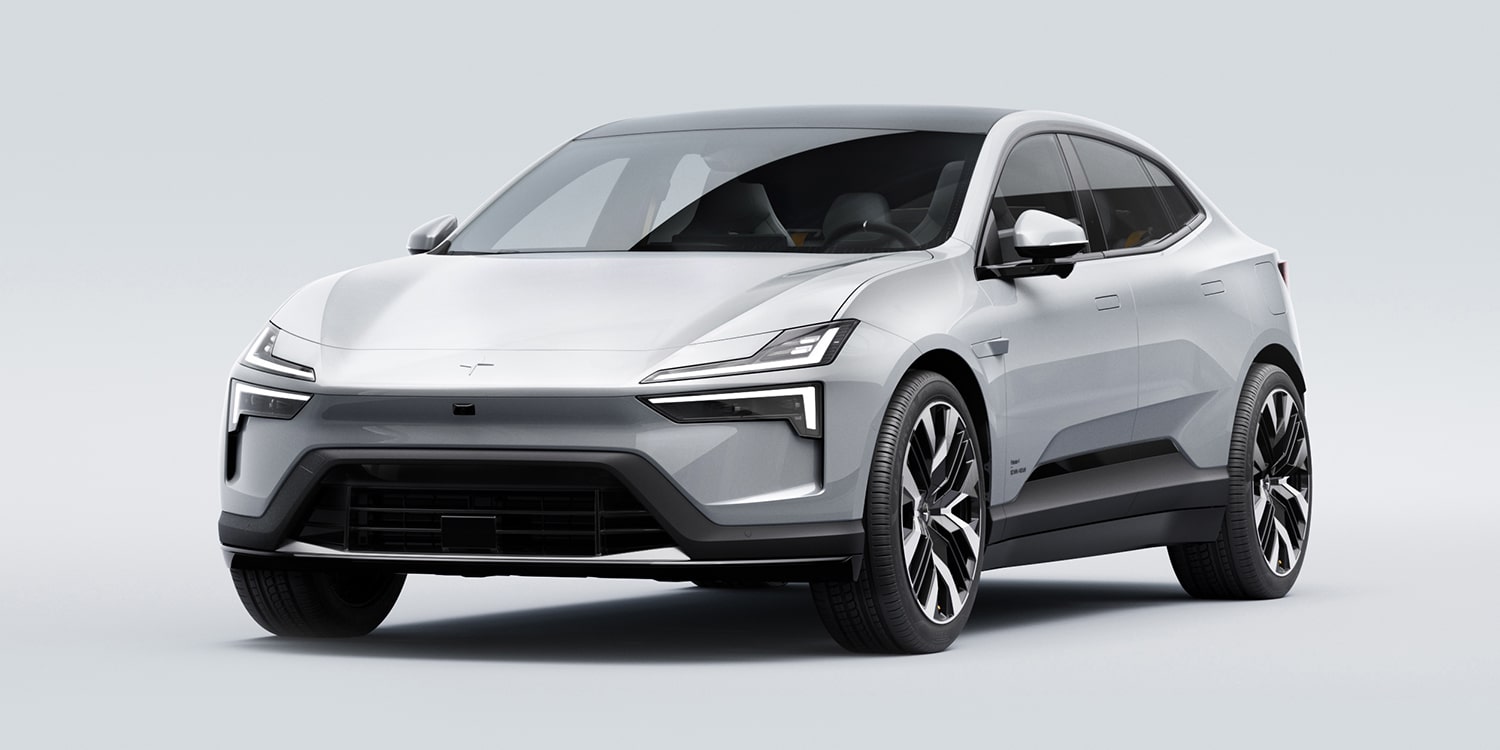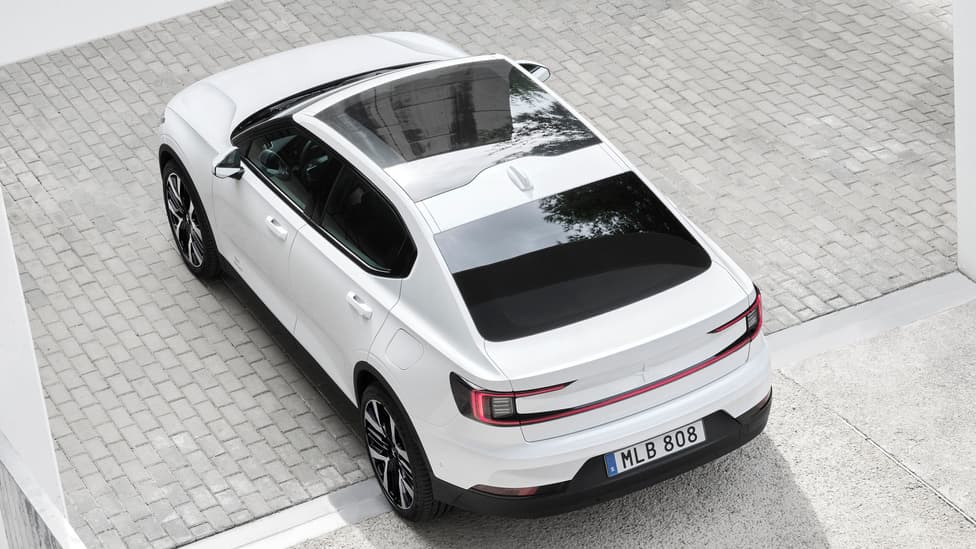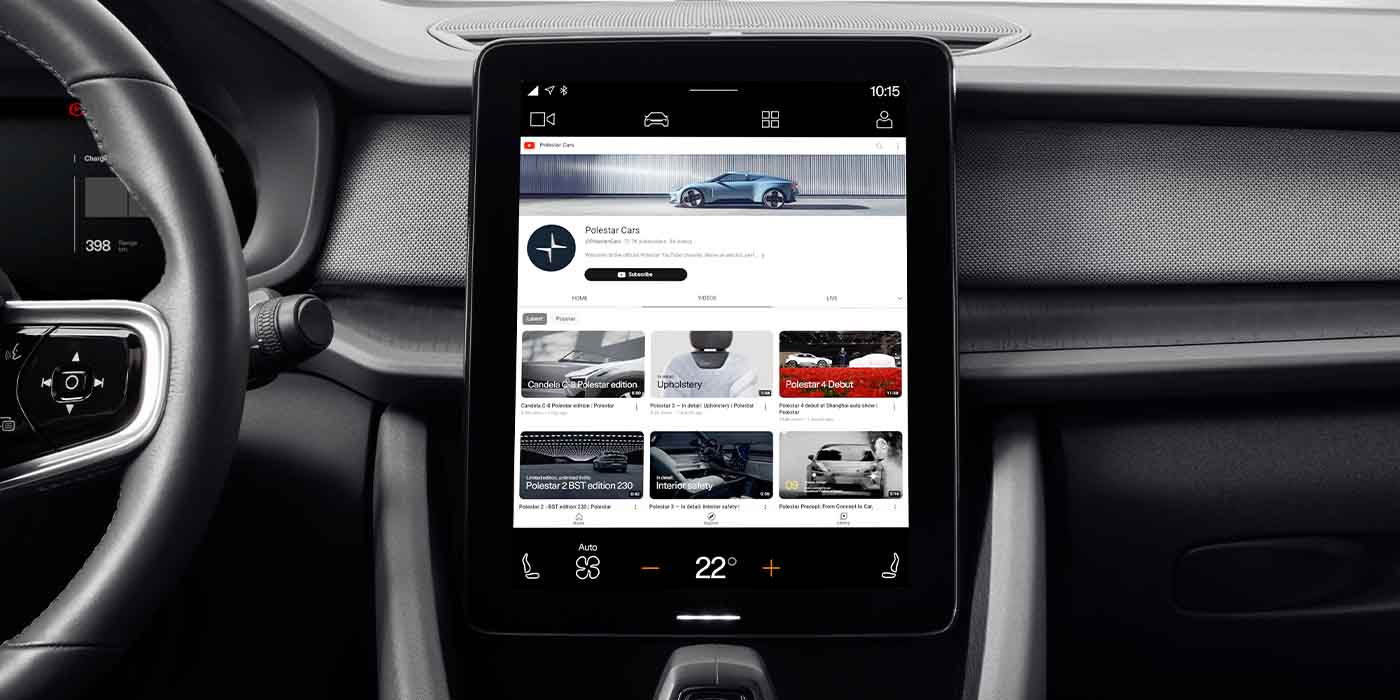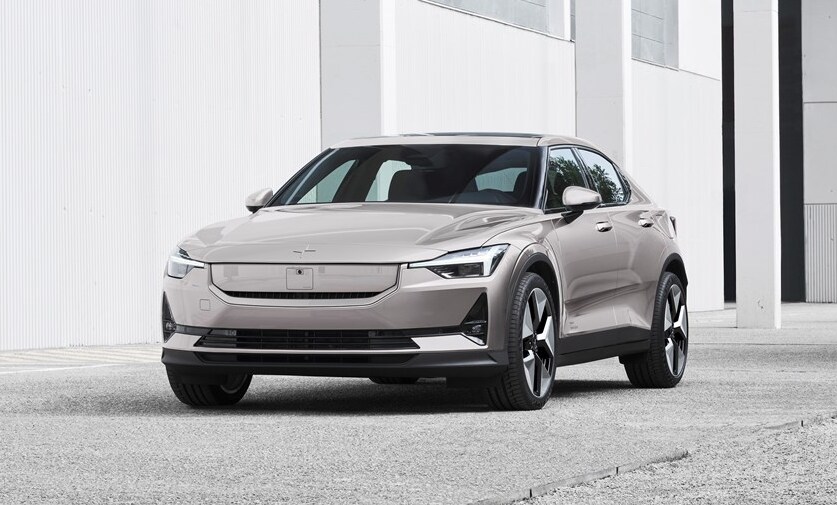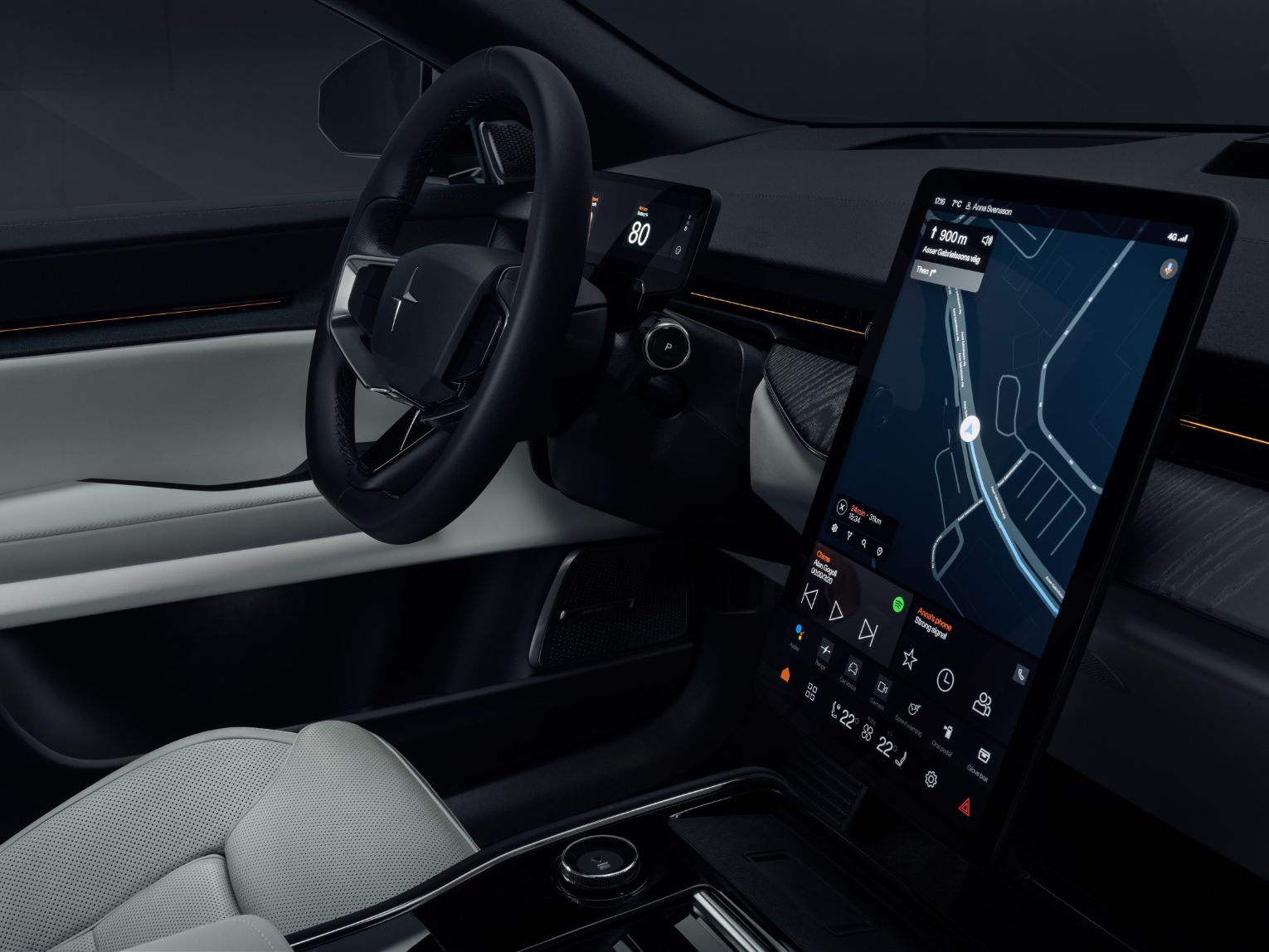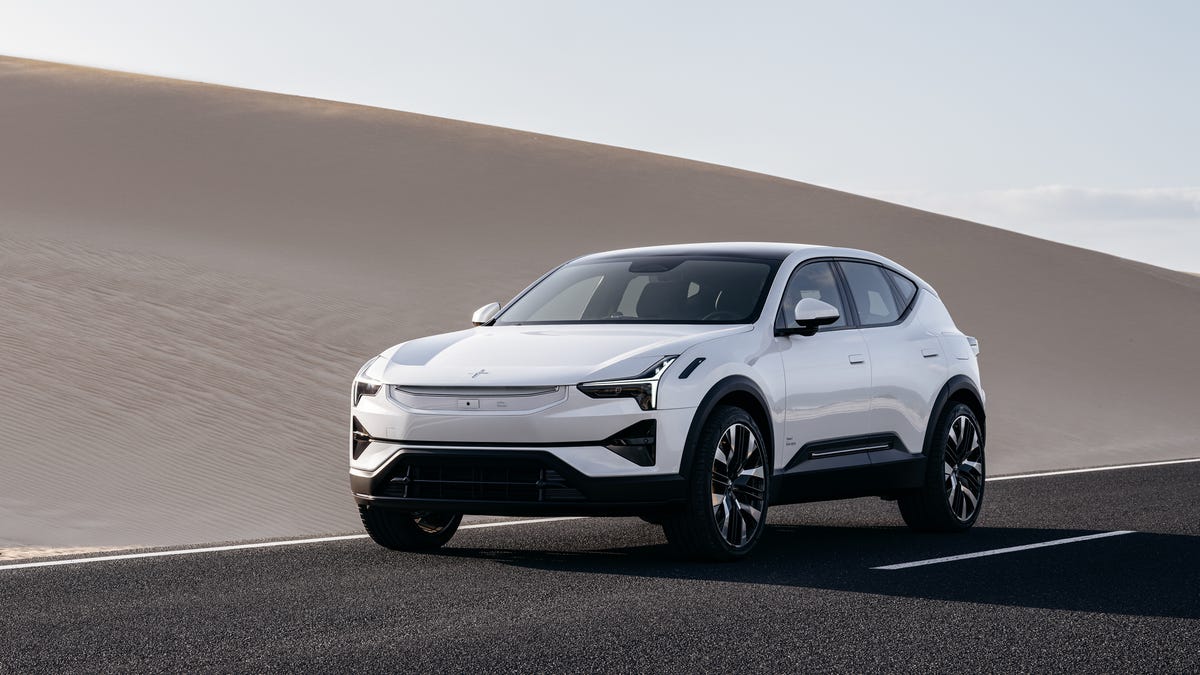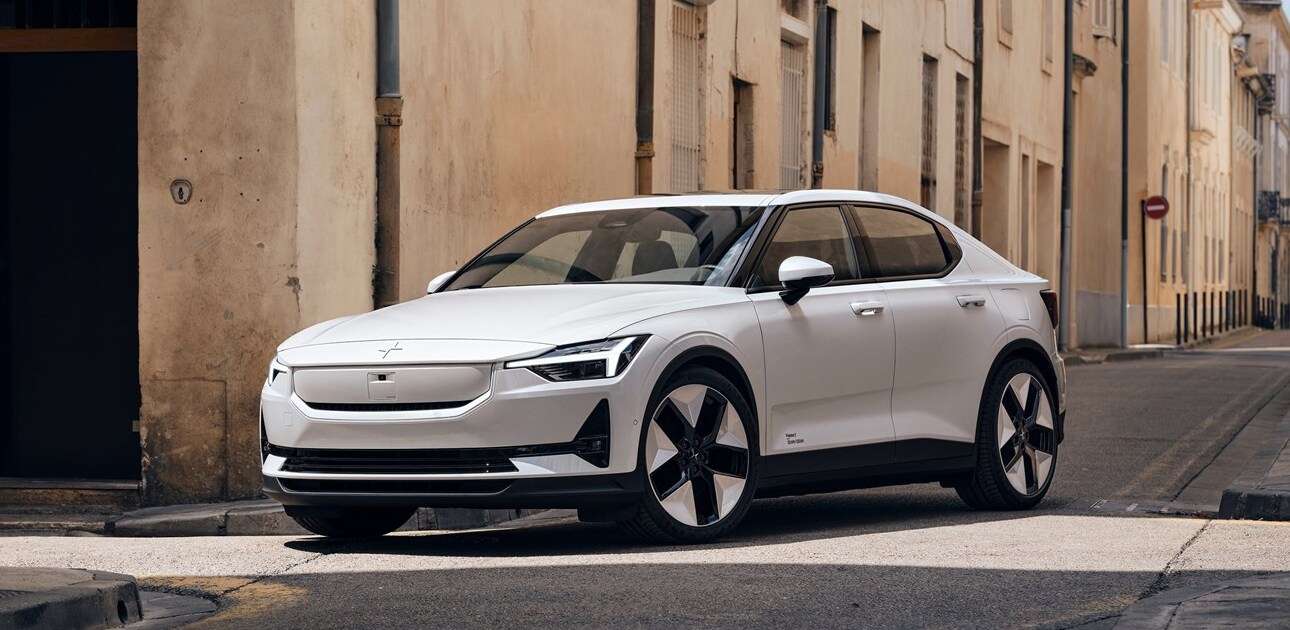Polestar has unveiled its third all-electric series model, the Polestar 4, at the Shanghai Auto Show. Positioned between the Polestar 2 and 3 in terms of size and price, the SUV coupé is the brand’s fourth model and the third BEV model after the Polestar 1 PHEV coupé. One of the most striking features of the Polestar 4 is the absence of a rear window. Instead, Polestar is claiming to provide “a new kind of immersive rear occupant experience.”
See also: Polestar 3 electric SUV premieres on October 12
According to Polestar, the Polestar 4 was designed from the ground up as an SUV coupé and not modified from an existing SUV, resulting in a spacious interior that prioritizes passenger comfort. The rear seats are reclining, and the interior mirror is replaced by a high-resolution screen that displays the image of a rear-view camera.
The Polestar 4 is based on Geely’s Sustainable Experience Architecture (SEA), which has been the basis for many electric vehicles in recent years. The SUV coupé takes over the permanently excited synchronous motors from the platform, which produce a system output of 400 kW and a torque of 686 Nm in the all-wheel-drive version presented in Shanghai. The single-motor variant will have a rear-wheel drive with 200 kW of power, 343 Nm of torque, and a range of 600 kilometers.
A 102 kWh battery is installed, which provides a provisional WLTP range of 560 kilometers for the all-wheel-drive version. The battery can be charged with up to 200 kW in both drive variants, and a bidirectional charging function will be available at the launch. Polestar emphasizes measures to increase the efficiency of the drive system, such as a disconnect clutch and a heat pump. The person at the wheel can choose between a range mode and a performance mode in the all-wheel-drive model.
See also: Polestar delivers 30,400 EVs for the first nine months of 2022, up 100% year-on-year
The Polestar 4 will be launched first in China, with production scheduled to begin in November 2023. It will be available in Europe, North America, and Asia-Pacific in early 2024, with an expected launch price of 60,000 euros.

